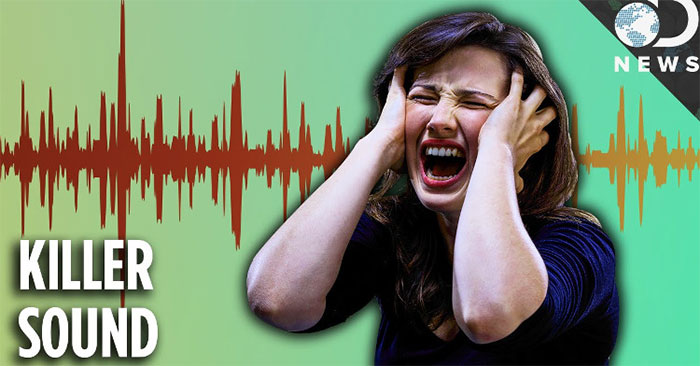How loud can a sound be deadly?
Sound may be present everywhere on Earth, but can a sound be so loud that it can be deadly?
First, let's learn how humans hear things. Sound appears when objects vibrate, and travels through the air or any other medium in the form of waves. The pinna, the visible part of the outer ear, collects sound waves and sends them down the ear canal, where they come into contact with the eardrum. The waves that vibrate the eardrum move tiny bones called oside in the middle ear, which help amplify sound.
The sound waves then enter the inner ear and then travel to the cochlea. This is where a liquid moves depending on the vibrations. Here, 25,000 nerve endings convert vibrations into electrical impulses. These impulses then travel along the auditory nerve to the brain.
It's how we hear everything, from leaves rustling in the wind, to music, to the loud sounds of jet engines.
These sounds have different effects on hearing. Some parts of the ear, especially the hair cells in the cochlea, can be damaged by loud sounds. They 'ride' the waves generated by the bending vibrations when in contact with the top of the structure. This creates electrical signals that travel to the brain. Louder sounds lead to more bending movements that can damage and even kill cells, leading to hearing loss. If the sound is loud enough, or happens gradually over time if there is repeated or long term exposure this will happen.
Sound is evaluated by intensity, measured in decibels (dB) on the logarithm bar.
Sounds such as breathing at 10dB, or talking at 60dB, are not harmful to humans. Damage will begin to occur when you listen to 80dB sounds, such as a leaf blower, for more than an hour. On a logarithmic scale, 100dB is 1 billion times stronger than 10dB, so any sound above 100dB can cause hearing loss.

Therefore, the sound of a car honking loudly 5m away reaches 100dB, which can lead to hearing loss after 15 minutes. Someone shouting directly into your ear reaches 110dB, which will cause hearing loss in less than 2 minutes. Standing next to a 120dB siren, a 140dB jet engine, or a 150dB firecracker will immediately cause hearing loss and even pain.
According to researchers, the human eardrum will rupture at about 175dB, the lungs will be damaged, causing the listener to die with sounds above 200dB. But to reach that level, you need to be next to an extremely loud sound source, like the world's loudest rocket engine reaching 204dB.
But humans are also affected by inaudible sounds, depending on the frequency intensity and duration of exposure. According to experts, infrasound waves affect the central nervous system, cardiovascular system and respiratory system, leading to conditions such as loss of concentration, fatigue, depression, and vibrating internal organs.